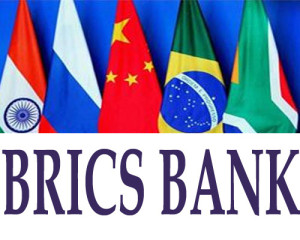Did Rio Olympics shine the light on why BRICS really should have been Cribs?
 It may not be too extreme to say that the Rio Olympics broadly showcased some of the problems faced by Brazil. And of the BRICS, that clutch of nations described in a jaunty acronym. There was a bit of hype and hope and a modicum of gloom.
It may not be too extreme to say that the Rio Olympics broadly showcased some of the problems faced by Brazil. And of the BRICS, that clutch of nations described in a jaunty acronym. There was a bit of hype and hope and a modicum of gloom.
How far we have come from that day in November when news came that Goldman Sachs was planning to shut its BRICS investment fund.
At the time, it was considered, in that overused term, “the end of an era.”
Now, it seems really smart and the sort of look-ahead policy that prevents banks and businesses from going bust.
Consider Brazil. Its economy has been in recession since mid-2014. Though industrial production edged up for the fourth straight month in June, it remains 18 per cent below the peak three years ago. Incomes are falling and unemployment is rising. Dilma Rousseff, the suspended president, may be impeached soon after the Olympics end. Her former deputy, Michel Temer, is neither visionary nor popular. Local elections are due next month and they are likely to be bitterly fought and a bitter exercise overall.
It’s hardly better for most of the BRICS economies – Brazil, Russia, India, China and South Africa. They have weakened in the past few years and Goldman’s Novemeber report showed that assets had dropped 88 per cent from a 2010 peak.
It took more than a decade for Goldman Sachs and the world to realise that the BRICS weren’t a business asset or even a business entity. In fact, they are large, politically diverse countries at different stages of development and industrialization.
And yet, the mania for clever new acronyms had everyone admiring Goldman Sachs economist Jim O’Neill’s lumping of four countries together as BRIC. Even so, Mr O’Neill did not necessarily say that BRIC was an economic entity that should prompt institution-building or mutual funds investment. All Mr O’Neill said at the time, as Quartz points out, was that Brazil, Russia, India and China were “rising in importance, and should be taken seriously by developed nations.”
The flaw in that argument was putting China near the end of the list, when as Goldman CEO Lloyd Blankfein pointed out at the time, it was the most important. Mr Blankfein suggested CRIBs might be a more accurate acronym but Mr O’Neill didn’t think something that created the image of babies was a good idea.
But it is China that remains (overly) dominant. Last year, it accounted for 13.3 per cent of the world’s GDP, which is nearly double that of Brazil (three per cent), India (2.6 per cent) and Russia (2.4 per cent) together.
It could hold out on its own. From CRIBS to CRIB to CRI to CR to C.

